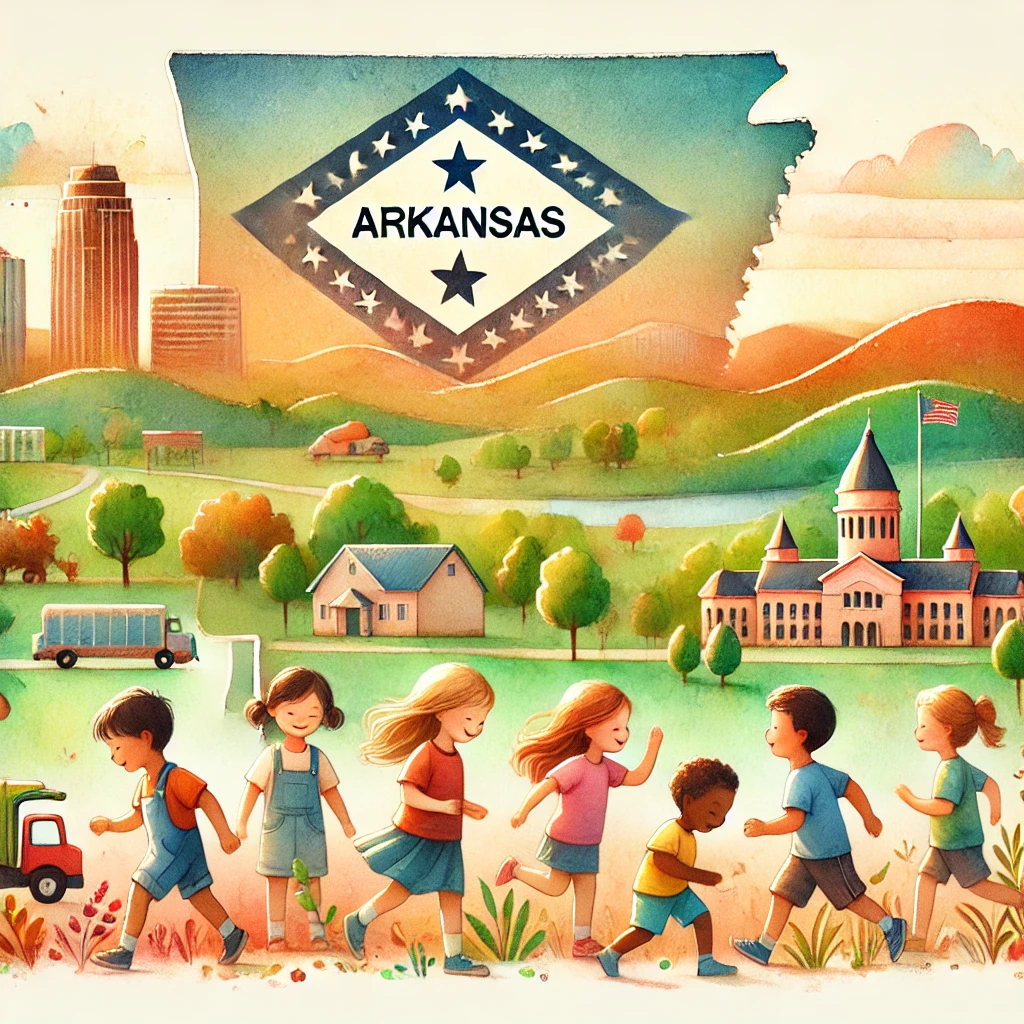Most Affordable Early Childhood Education Degrees in Alaska

Find your perfect college degree
In this article, we will be covering...
Early childhood education is not just about teaching; it’s about fostering a child’s spirit, understanding their needs, and nurturing the whole person. Educators in this field witness firsthand the curiosity and wonder that children bring into the world. They have the opportunity to guide that raw energy, molding it into skills that will serve these young learners for life. There’s nothing quite like seeing a child’s eyes light up when they understand something for the first time, and that’s the joy that early childhood educators get to experience every day.
In Alaska, the need for skilled early childhood educators is more pressing than ever. To meet this demand, we must make education accessible for those who have the passion to teach but are held back by financial barriers. It’s a blend of care, dedication, and practical support that will help build the foundation for a brighter future for all Alaskan children.
The Need for Affordable Degree Programs
The road to becoming an early childhood educator should not be paved with insurmountable debt. Many prospective teachers are driven by the pure desire to support and educate children, but the financial burdens of obtaining a degree can weigh heavily on these aspirations. Those who enter fields like early childhood education may not do it for monetary gain; they do it because they feel a calling. And this calling should be supported by programs that are financially accessible, that allow them to learn and grow without the crushing pressure of financial instability.
An affordable education opens doors, allowing future educators to focus on learning how to nurture children’s growth without the added stress of paying back excessive loans. It allows these individuals to stay true to their purpose—caring, teaching, and inspiring.
Key Factors Influencing Affordability
In-State vs. Out-of-State Tuition Costs
For Alaskan students, one of the simplest yet most effective ways to manage costs is to stay close to home. In-state tuition provides a substantial discount, making education more accessible. Imagine being able to attend school and still being close to the community that raised you—learning to teach the children in your own neighborhoods. While non-resident fees may deter some, Alaska’s reciprocal agreements offer a beacon of hope, extending opportunities even to those from beyond state lines. It’s not just about saving money; it’s about staying connected to your roots.
State-Specific Financial Aid and Scholarships
Alaska offers unique financial aid opportunities that reflect the importance of early childhood education within the community. These scholarships and grants are designed to alleviate the financial burden so that more people can answer the call to educate young minds. It’s about giving those with a passion for teaching a real chance, ensuring that money doesn’t stand in the way of making a difference. Every prospective educator should take advantage of these opportunities, exploring all the resources that exist specifically to help them succeed.
Program Duration and Format (Online vs. On-Campus)
The format of a program can deeply influence affordability, but it also plays into lifestyle and personal choice. Online programs offer flexibility—they give single parents, individuals working part-time, and those living in remote areas a chance to pursue their dreams without uprooting their lives. For some, the choice between on-campus and online isn’t just about money—it’s about making it all work: balancing work, family, and school while not missing a beat. And when you factor in the cost savings from avoiding commuting and housing, online education becomes a powerful, viable option for many.
Community College Transfer Programs
Taking the community college route is often an underrated yet invaluable path. Starting at a community college allows students to ease into higher education at a lower cost, laying down a strong foundation before tackling more advanced studies. It’s not about shortcuts; it’s about being resourceful. In Alaska, community colleges foster supportive environments where students can grow at their own pace and, when ready, transition to a four-year university without losing momentum or breaking the bank.
Top Affordable Early Childhood Education Programs in Alaska
Affordable State University Programs
Ilisagvik College
- Tuition: $4,500
- Degree: Associate’s in Early Childhood Education
- Accreditation: NWCCU
- Ilisagvik College makes early childhood education accessible by prioritizing the needs of local communities. This program is about more than just learning theory; it’s about becoming a part of a community that supports growth for both the educators and the children they serve.
University of Alaska Fairbanks
- Tuition: $8,040
- Degree: Bachelor’s in Early Childhood Education
- Accreditation: NWCCU
- The University of Alaska Fairbanks goes beyond traditional education—it’s about connecting with the research-driven methods that will allow future educators to understand not just what to teach, but how and why. It’s about being part of an evolving field, using science to unlock the potential in every child.
University of Alaska Anchorage
- Tuition: $8,520
- Degree: Bachelor’s in Early Childhood Education
- Accreditation: NWCCU
- UAA provides future educators with diverse resources and hands-on experience, ensuring that students don’t just learn in a classroom but also get out there in the real world, making an impact. Here, imperfections are embraced—every student, every teacher, every child is seen as an individual, growing and learning together.
University of Alaska Southeast
- Tuition: $8,520
- Degree: Bachelor’s in Early Childhood Education
- Accreditation: NWCCU
- UAS focuses on culturally responsive education, which is crucial in Alaska’s diverse environment. It’s about understanding different perspectives, learning from the community, and being adaptable—teaching children by understanding the context they are coming from, rather than imposing a one-size-fits-all approach.
Alaska Pacific University
- Tuition: $20,760
- Degree: Bachelor’s in Early Childhood Education
- Accreditation: NWCCU
- APU may come with a higher price tag, but it offers a personalized approach to education. For students who thrive on individualized attention, this could be the perfect choice. The beauty of APU is in the relationships it fosters—between educators and learners, and between learners and their future students.
Flexible and Affordable Online Programs
The flexibility of online programs is what makes them so powerful. Many Alaskan universities provide these online options, which allow students to study on their own terms.
Imagine being able to learn from your kitchen table while still making breakfast for your family, or attending a lecture while the snow falls softly outside your window. It’s the kind of flexibility that allows you to pursue your dream without putting your life on hold.
Accelerated and Transfer-Friendly Programs
Accelerated Degree Options in Alaska
Accelerated programs aren’t just about getting through school quickly—they’re about momentum. For those who are eager to get into the classroom, who already have some experience, or who want to fast-track their careers, accelerated programs can be the perfect fit. The University of Alaska system has flexible options that help students keep up the pace while reducing overall tuition costs.
Credit Transfer and Articulation Agreements
Transferring credits from a community college to a four-year institution is one of the smartest financial decisions a student can make. It’s about starting small, gaining confidence, and then stepping into something bigger. In Alaska, the process is made smoother through generous transfer policies. It’s about making every course, every dollar, and every effort count toward your future.
Financial Aid Opportunities
State Grants and Scholarships
Financial aid in Alaska isn’t just about numbers; it’s about opportunity. State-level scholarships and grants specifically support those who want to shape the future of early education. Programs like the Alaska Performance Scholarship can be a game changer. It’s about giving people hope, helping them to see that a career in education is not only possible but within reach.
Federal and State Financial Aid Programs
The FAFSA is often the first step for students seeking help. It’s not just a form—it’s a gateway to opportunity. Alaska also has its own specific aid programs, tailored to meet the needs of students within the state. Staying on top of deadlines is key, but it’s also about believing that these opportunities are there for you, waiting to be claimed.
Additional Cost-Saving Strategies
Employer Tuition Reimbursement Programs
Many early childhood centers and school districts in Alaska understand that their employees are the lifeblood of their communities. That’s why they offer tuition reimbursement programs—because when an educator grows, so does the entire community. Working in the field while studying means students aren’t just learning about best practices—they’re living them.
Work-Study Programs and Part-Time Work Options
Balancing work and study can be challenging, but it’s also rewarding. Work-study programs offered by Alaskan universities allow students to earn money while gaining valuable experience. These positions aren’t just jobs—they’re opportunities to learn, grow, and connect with the early childhood community, all while managing the financial strain of getting a degree.
Licensing and Certification Requirements in Alaska
Certification and Licensing for Early Childhood Educators
Alaska’s ECE Certification and licensing requirements ensure that educators are prepared for the unique challenges of teaching young children. These aren’t just hoops to jump through—they’re part of a journey that turns passionate individuals into capable educators. Some programs even cover certification exam fees, understanding that support doesn’t end at graduation.
Ongoing Professional Development
The journey doesn’t end with certification. Alaska requires ongoing professional development, and it’s for good reason. Teaching is an evolving field, and educators need to grow alongside it. Fortunately, Alaska offers affordable resources for continued learning, keeping educators at the forefront of best practices and innovations.
Potential Career Paths and Salaries in Alaska
Job Market and Demand for Early Childhood Educators
There’s a genuine need for early childhood educators in Alaska, especially in rural areas where children deserve just as much quality education as their urban counterparts. This demand means that graduates are stepping into a field that truly needs them. It’s not just about finding a job—it’s about fulfilling a need, making a difference where it matters most.
Average Salaries and Career Growth Opportunities
While salaries for early childhood educators in Alaska are competitive, the real value lies in the opportunity to grow. With additional certifications, educators can increase their earning potential, but more importantly, they can expand their impact. It’s about career growth that matches personal growth—a continuous evolution that benefits both the educator and the children they teach.
In Conclusion
Finding the Right Balance of Affordability and Quality
Choosing an early childhood education program isn’t just about crunching numbers. It’s about finding a program that speaks to you, that aligns with your values, and that allows you to grow without taking on excessive debt. Alaska offers a range of options that strike this balance, ensuring that education is accessible without compromising quality.
Using State Resources and Community Support to Lower Costs
There’s a wealth of resources available—state-specific scholarships, financial aid, and community support. These resources are here to be used, to help prospective educators follow their passion without being weighed down by financial stress. It’s about making informed decisions and using what’s available to open doors.
Making a Difference in Alaska
A career in early childhood education isn’t just a job—it’s a calling. It’s about contributing to the lives of young children, their families, and the broader community. By investing in affordable, high-quality education, prospective educators can make a lasting impact, helping to shape a brighter future for Alaska.
There will be challenges, there will be imperfections, but that’s the beauty of it—teaching is about growth, for both the children and the educators themselves.




